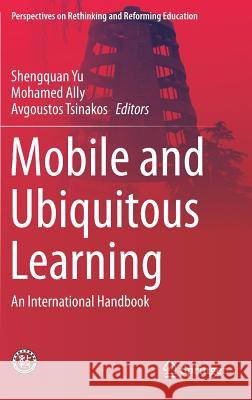Mobile and Ubiquitous Learning: An International Handbook » książka
topmenu
Mobile and Ubiquitous Learning: An International Handbook
ISBN-13: 9789811061431 / Angielski / Twarda / 2017 / 377 str.
Kategorie:
Kategorie BISAC:
Wydawca:
Springer
Seria wydawnicza:
Język:
Angielski
ISBN-13:
9789811061431
Rok wydania:
2017
Wydanie:
2018
Numer serii:
000790661
Ilość stron:
377
Waga:
0.72 kg
Wymiary:
23.39 x 15.6 x 2.24
Oprawa:
Twarda
Wolumenów:
01
Dodatkowe informacje:
Wydanie ilustrowane











